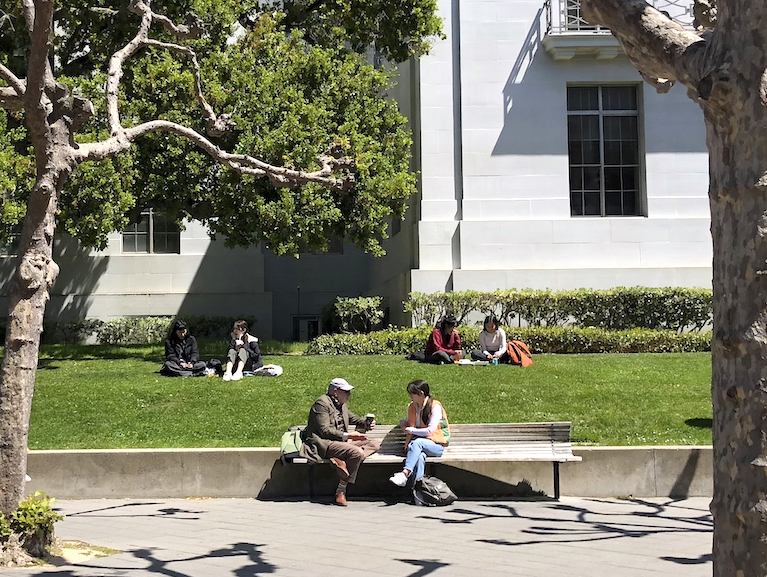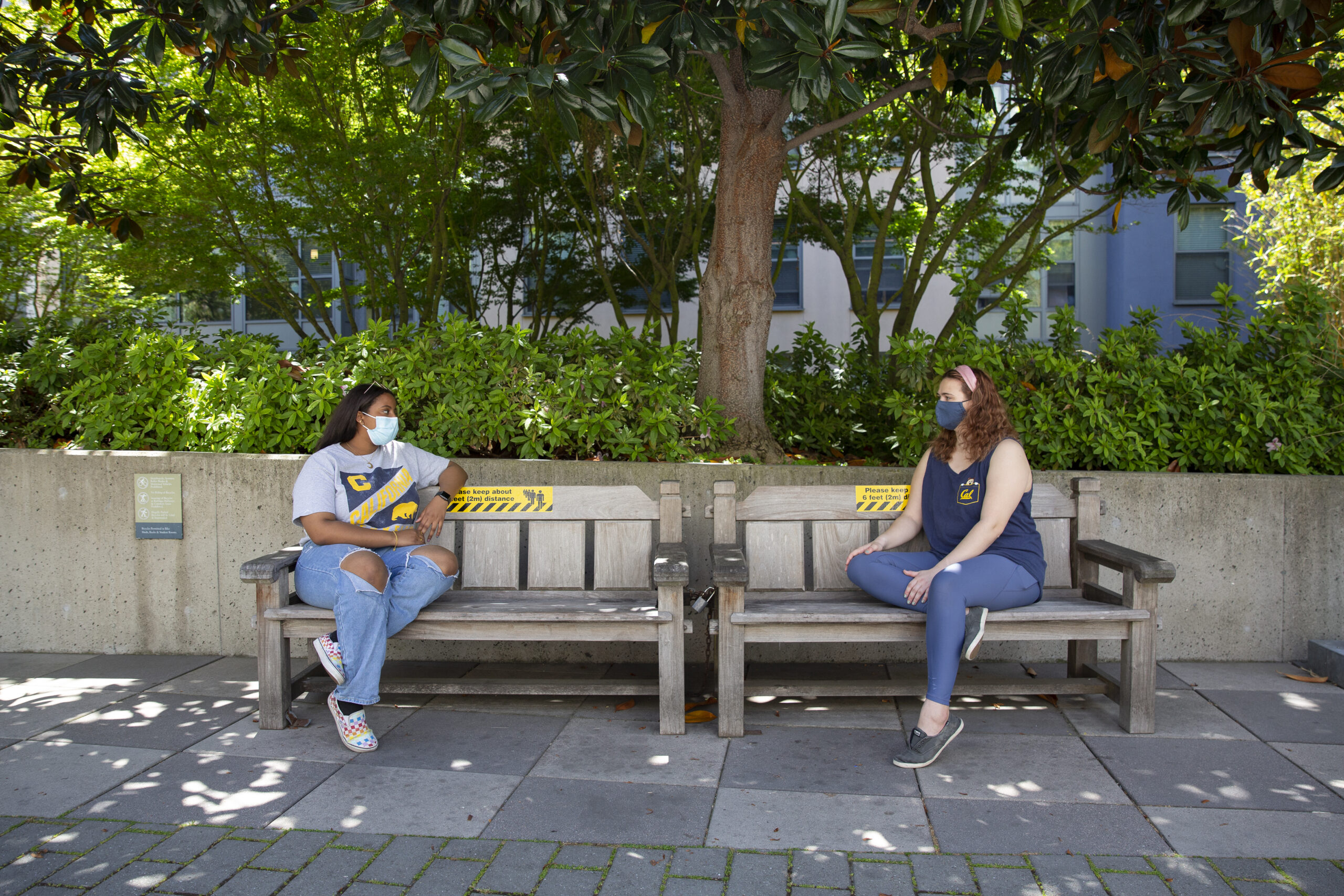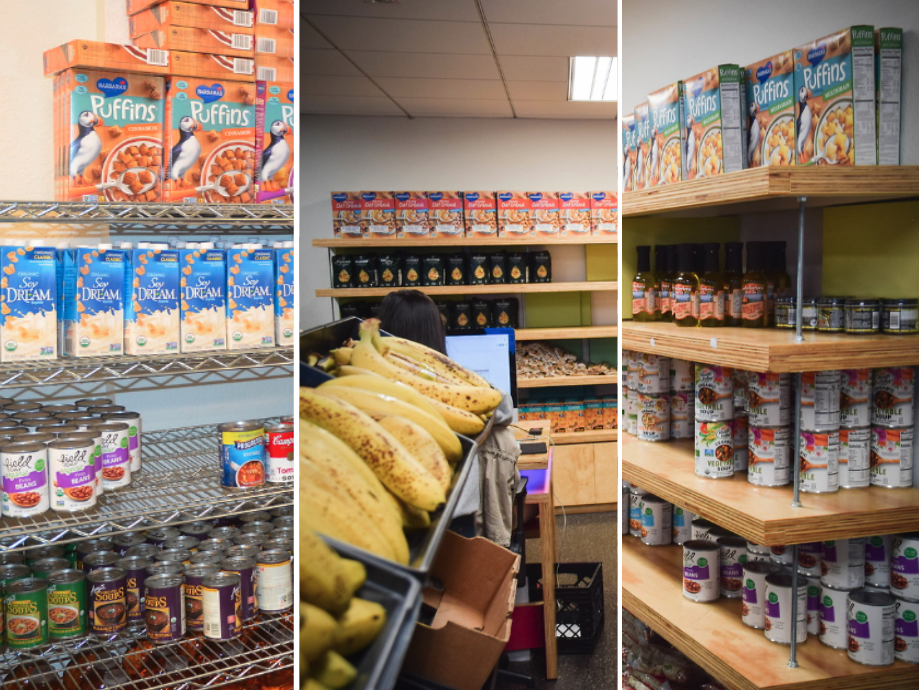
A Senior’s Advice on Managing Anxiety at School
The beginning of the school year is filled with change — new classes, clubs, activities, and connections. It can be an incredibly exciting and stressful season. Berkeley is home to over 45,000 students and the campus can be a competitive environment. Students may not be used to living away from home, or with roommates; classes are hard; days are long; and there never seems to be enough time. Here are some strategies to mitigate anxiety, as well as some ways to make such a big campus feel a little smaller.
Many College Students Experience Anxiety
Studies (and personal experience) show that anxiety is common, especially amongst college students. Although this may sound daunting, I find it slightly reassuring that I’m not alone in my struggle with mental health.
A Boston University study found that between 2020 and 2021, more than 60% of college students, particularly students of color, met criteria for at least one mental health problem. Levels of anxiety, depression, and stress steadily rise during the initial transition to college, and remain high throughout the entirety of the first year.
A 2019 Harvard report found that anxiety has been historically attributed to sleep disruption, loneliness, and academic pressure, and more recently linked to social media use, especially throughout the pandemic.
My First-Year Experience
To say my beginning at UC Berkeley was a bit rough is an understatement. Due to COVID-19, I decided to stay home for my first semester. As a Bay Area native, I figured I would be able to commute into the East Bay when we were eventually allowed to be with others in person. But that day didn’t come until much later.
Instead, my freshman year was overwhelmingly lonely. Although I joined organizations and connected with other incoming freshmen through social media, I felt disconnected. No Zoom or FaceTime call could ever replicate an in-person conversation or connection. I moved into the campus residence halls my spring semester, and it was difficult for me to adjust. Due to extensive quarantines and limited social interaction, I ended up spending a significant amount of time back home with family instead of on campus. I loved my classes, but had constant headaches and a steady decline in motivation as I spent nearly the entire day staring at a screen. I was used to working a part-time job throughout the year, but being entirely remote demanded a whole new level of focus and self-discipline.

UC Berkeley students returned to campus, 2021. Photo by Brittany Hosea-Small.
As Berkeley’s campus began to get busier and host more in-person events again, I finally felt like I was truly starting my college experience. I continued to join new clubs, meet new people, and find my place within the Cal community. If I can do it, I promise you can too!
Find Comfort in Community and Solitude
In the wake of the pandemic, having a community to rely on has been the greatest help to my mental health. Joining clubs and organizations, taking a minute to talk to someone after class, or going to a football game are easy ways to connect with others in the Berkeley community. Putting yourself out there can be anxiety-inducing, but embracing the challenge as a way to grow is fulfilling and can lead you to meet some of your best friends. Finding your people will take time, but try to enjoy the people you meet along the way! Relying on family and friends from home for encouragement is incredibly helpful, too.

Dive into community! Left photo: Kelsey in her second year (left) joined Cal Greeks. Right photo: Kelsey in her third year (center) studied abroad in South America.
That’s not to say that spending time alone isn’t also important. For me, learning to be alone and truly enjoying it has been the greatest lesson I’ve learned while in college. Take time to put energy solely into you. This could be going to the gym or moving your body as much as possible, or cultivating a morning routine with time for journaling or meditation. Or, this could be taking a night off to watch Netflix and applying a revitalizing face mask — whatever makes you happy and relaxes you.
I have learned to prioritize my well-being above all else.
Time Management Tips
The greatest challenge I’ve encountered at Berkeley has been time management. Student schedules are hectic and prioritizing tasks and activities can be difficult. My first strategy for time management is to rely on bCal, or my Google Calendar. Although physical planners and daily to-do lists are helpful, Google Calendar will quickly become your best friend and resource. I personally only enter my classes, meetings, events, and work schedule. Some people map out their day down to the minute on their calendars. You can even color code your day-to-day schedule to help organize the agenda.
Another suggestion would be to incorporate the Pomodoro Technique. This method consists of working in 25-minute increments, or pomodoros, followed by 5-minute breaks. For me, this allows for high-focus periods with a short time off to stretch or grab a snack. After four intervals of this timing structure, feel free to take a longer break or end the work session entirely.
Nourish Yourself
Food insecurity can also contribute to anxiety. Within the past year, 44% of University of California students reported facing food insecurity. This particularly impacted lower-income students, students of color, and LGBTQIA+ students.
CalFresh helps cover food costs and is an option for students who meet the federal income eligibility requirements. This program provides online monetary payments on a monthly basis to cover grocery and food expenses. The majority of Berkeley grocery stores and markets accept CalFresh.
The Food Pantry on campus offers emergency relief for any “students, staff, visiting scholars, student researchers, postdocs, and faculty who need food.” With snacks, freezer items, and fresh produce available, the Food Pantry offers a short-term solution to food insecurity as individuals can visit the pantry once a week to pick up what they may need for free, while being mindful that this is a shared community resource.

UC Berkeley Basic Needs Center Food Pantry, credit: ©UC Regents
Campus Support Resources For You
These recommendations are a starting point, and they may not be enough to address your anxiety. If you feel like you need additional professional help, please consider using campus resources that are available to all Berkeley students. They are here for you!
UHS, or University Health Services, offers numerous mental health services and resources for Berkeley students, such as teletherapy, group counseling, and crisis resources. This is a simple way to access professional mental health help.
CAPS, or Counseling and Psychological Services, specifically functions through UHS for the purpose of supporting students’ mental well-being. These university-affiliated resources provide accessible professional services for students.
SHIP, or Berkeley’s Student Health Insurance Plan, includes medical and counseling coverage. SHIP offers short-term counseling as well as psychiatry appointments through the Tang Center for discounted rates.
PSPs, or Graduate Peer Support Providers, are graduate students working under faculty in the School Psychology Program in collaboration with CAPS, and they’re equipped to offer one-on-one support to graduate students. Graduate students might also be interested in checking out the Graduate Wellness Center, which provides graduate-focused services such as workshops, talks, and counseling.
Schedule Time for You
My final recommendation is to schedule time for self-care as much as you do for school. For me, this includes spending time outside, journaling, and getting movement in. Try to schedule at least one activity in a day that is just for you to decompress. Focusing your energy and allocating time for a consistent routine that incorporates mindfulness and self-care can make a world of difference.
Kelsey McIvor is a senior at UC Berkeley majoring in global studies, and minoring in Spanish and public policy. Cover photo by Student Affairs Communications. This article was updated by Nina Takahashi, Class of 2026, in January 2025.
Want More?
- Learn more about physical, nutritional, and mental Wellness Resources @ Cal.
- Anxious about finances? Here are some tips from an expert.
- Read how Angelica’s family keeps her energized.
- Let yourself take a break — here are eight ways to do so.